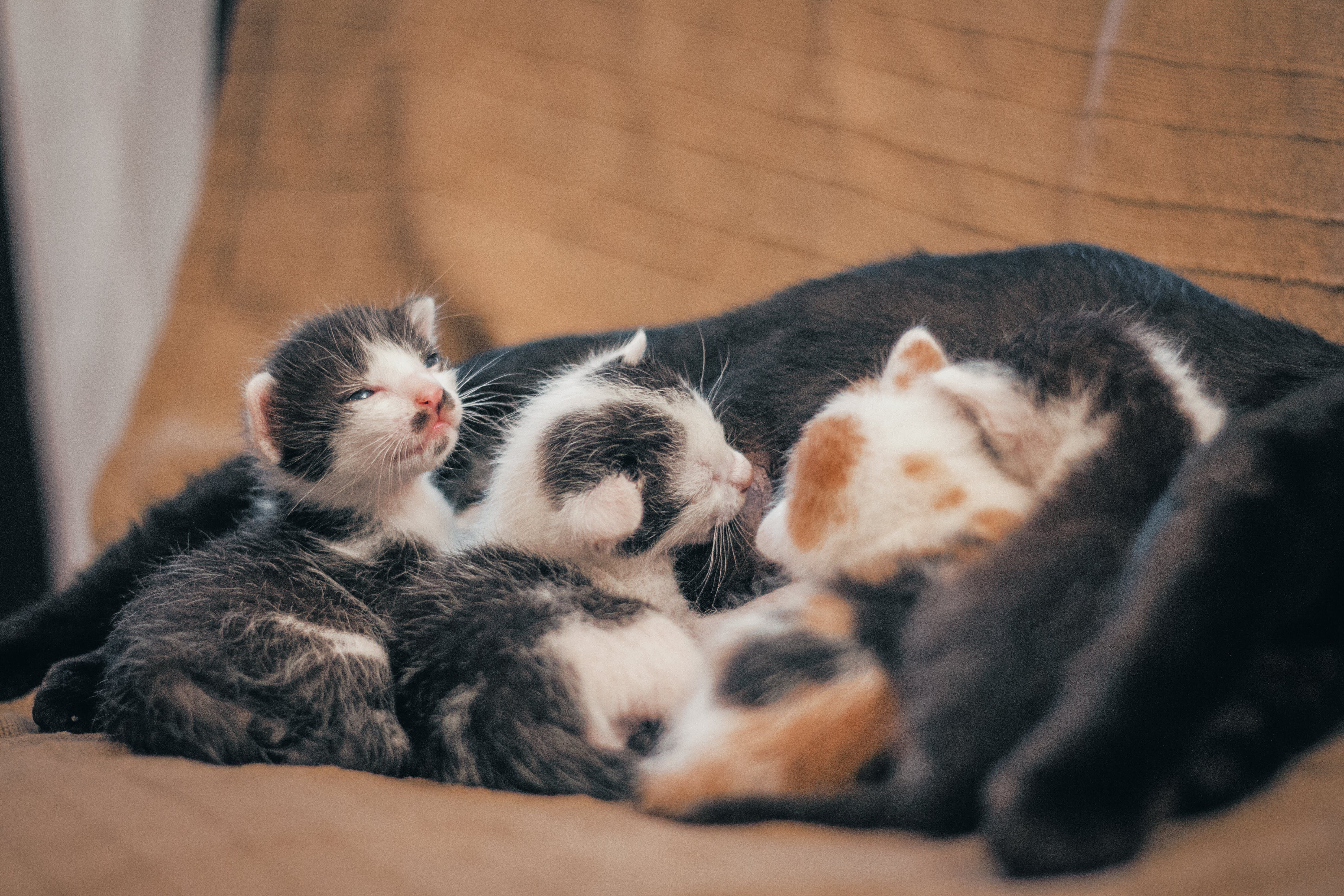When Do Cats Have Kittens?
11/9/23

Ah, the miracle of life in full swing! Once a pregnant cat, also known as a queen, embarks on her journey, the average gestation period lasts approximately 63 to 65 days. During this time, the soon-to-be momma cat undergoes remarkable changes. How do I know if my cat is pregnant? Her appetite may increase, leading to a few extra trips to the food bowl. Hey, she's eating for two, after all! She might also experience morning sickness, similar to some human mommas-to-be.
Understanding the Cat Reproduction Cycle
In the mysterious world of feline reproduction, female cats reign supreme. They experience an incredible process called the estrus cycle, which consists of several distinct stages. During this cycle, hormonal changes occur, triggering both physical and behavioral transformations. Meowza!
When it comes to sexual maturity, cats reach their teenage years at around six months of age. Yep, they grow up fast! However, it's essential to remember that early pregnancies in young kittens can pose health risks. So, let them enjoy their playful phase before diving into the world of parenthood.
Factors Influencing the Timing of Cat Pregnancies
When is kitten season? Let's dive into the factors that influence the timing of our feline friends' pregnancies. Mother Nature has her ways, and environmental factors play a significant role. Daylight duration and a cat’s fertile period acts as sneaky cues for cats, signaling when it's time to get the purr-ty party started. But how long are cats in heat? Cats have individual tempos that are unique, but their fertile period often ranges from one to two weeks. Additionally, temperature and the availability of mates can set the stage for a romantic rendezvous or put a temporary pause on the love train.
Gestation Period in Cats
Ah, the miracle of life in full swing! Once a female cat becomes pregnant, the average gestation period lasts approximately 63 to 65 days. During this time, the soon-to-be momma cat undergoes remarkable changes. Her appetite may increase, leading to a few extra trips to the food bowl. Hey, she's eating for two, after all! She might also experience morning sickness, similar to some human mommas-to-be.
Signs of Approaching Labor:
Kittens on the way, folks! As the magical moment of birth draws near, your furball might exhibit behavioral and physical signs. Keep an eye out for restless behavior, excessive grooming, and seeking out cozy spots to build a nest fit for a royal family. Yes, even the most independent cats feel the urge to create a safe haven for their upcoming litter.
The Birth of Kittens
The moment we've all been waiting for: the birth of those precious furballs! The labor and delivery process in cats is an awe-inspiring journey. It generally unfolds in several stages, each filled with anticipation and excitement. From the early contractions to the final push, our feline friends exhibit incredible strength and determination.
Remember, each kitten takes its time making its debut. The intervals between births can range from a mere few minutes to up to an hour or more. So, sit back, relax, and be ready to welcome those little bundles of joy into the world one by one.
As pet owners, it's crucial to be proactive in ensuring the health and well-being of both the mother cat and her newborn kittens. Providing proper nutrition, veterinary care, and a safe environment are key elements of responsible pet ownership. If you have any concerns or questions about cat pregnancy or the birthing process, don't hesitate to consult with your veterinarian. Enjoy the journey of feline reproduction and witness the miracle of life unfold before your eyes!
Postpartum Care for Mother and Kittens
The journey doesn't end with the birth of kittens, my dear friends. Oh no, it's just the beginning! Now it's time to provide the best postpartum care for the new momma cat and her tiny fluffballs. Ensure she has a quiet and comfortable space to bond with her kittens. And don't forget to shower her with love, attention, and, of course, plenty of nutritious cat food to support her postpartum recovery and milk production.
Regular veterinary check-ups are a must to ensure the well-being of the entire furry family. Vaccinations will help protect those vulnerable little kittens from any potential health issues. After all, prevention is the best purr-scription for a long and happy life.
Conclusion
Phew! We've embarked on an exciting journey through the mysteries of feline reproduction. As a pet owner, you’re now armed with knowledge about when cats have kittens, the signs of approaching labor, and the marvels of the birth process. Remember, this guide serves as your compass, but seeking professional advice for specific cat breeding inquiries, including the care of unwanted cats or unwanted kittens, is always a wise choice.
So, dear fellow cat enthusiasts, embrace the wonder of feline parenthood, and be there to support your furry companions through every step of their incredible journey. May your homes be filled with the adorable sounds of tiny meows and the delightful pitter-patter of tiny paws.



